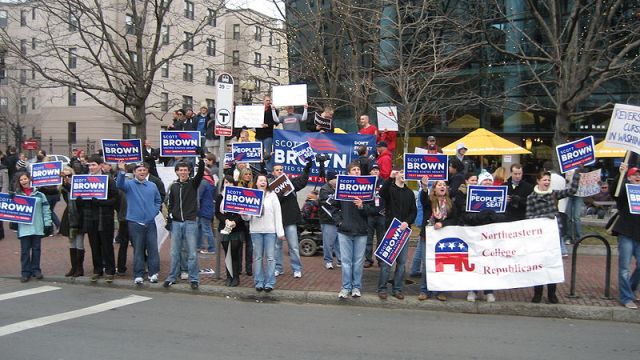Truth Telling And Race

It only took me a few minutes, after I tuned into the tail end of Obama’s America: 2010 And Beyond on television the other night, to see that we Americans were playing the same old game, just on a bigger stage, and with more lights than usual. The usual parade of academics and media personalities had converged on a stage before a sea of dark faces, speaking passionately about their own pet theories on race. As I listened to the guests and a few members of the audience talk and talk and talk, my mind wandered back to an experiment my on-line writing group tried years ago, an informal exercise that was modeled after the Truth and Reconciliation Commission in South Africa that came about after the end of apartheid.
It wasn’t that I thought Chris Matthews and Tom Joyner didn’t have good intentions when they agreed to co-host Obama’s America: 2010 And Beyond. Tom Joyner, “Mr. Party With A Purpose” centers a lot of his nationally syndicated radio program, The Tom Joyner Morning Show, around his support of historically black colleges. He is constantly raising money for them, handing out scholarship money the way Rockefeller used to hand out dimes. And even though I think Chris Matthews has a tendency to be pretty self absorbed, I can see that he has a genuine interest in the lives of his fellow man, whatever their background.
But as I popped off a few derisive comments about the proceedings to my Twitter friends, the memory of the truth telling experiment with my cyber writing buddies years ago wavered in the background. Memories being what they are, I decided to actually take a look at the archives of the site to see what happened when we regular everyday people decided to have a no holds barred discussion on race.
I was opposed to the idea, as I wrote below:
“The people you want to reach either already have all the freedoms and advantages they can dream of, or are so disenfranchised, and disenchanted, that they have no reason to believe that participation in such a scheme could possibly have any benefit to them. Any effort I’ve ever seen to bridge the gap between racial groups always seems to have a conciliatory bent.
The overwhelming desire, as I see it, behind many of these efforts is geared towards reaching some sort of consensus that will be attractive to all parties. But the mathematics of being a minority have always translated into a “less than” existence. The problem America has today is the way that it is now asking the proverbial whipping boy for forgiveness.
Indians already know how many hundreds of thousands of their ancestors were slaughtered. Blacks already know how much cruelty, thievery, and heartlessness whites are capable of delivering. As minorities, we’ve grown up hearing these alternate histories while learning to read between the lines in newspaper articles and history books. But our knowledge of the truth, knowledge that is often denigrated, or simply ignored by outsiders, has not gotten us any closer to parity.”
But I ended up participating anyway.
In a lot of ways it was terrible and horrible and eye opening, a round robin of gut wrenching confessions about deep seated prejudices from many of the people who participated, including me. Unlike television, where only one conversation goes on at a time and people behind the scenes manage finite airtime with military precision so they can be sure to get their commercial breaks in on schedule, the participants in an internet bulletin board discussion have all the time in the world to type to their hearts content.
So we veered off the topic. We called each other names. We were profane, belligerent, headstrong, defiant, angry, upset, and sarcastic. We often talked past each other for several posts, until others pointed out that some of us were not on the same page in the conversation. But there were also moments of high comedy, the production of footnoted historical references, and every once in awhile, a few lines of pure poetry about the boundaries of the human condition we were attempting to explore.
Real racial reconciliation will begin when we put big words on the shelf and start with small ones – like “truth” and “the facts of history”. When we can unbind ourselves from our predetermined points of view, both conscious and subconscious, when it comes to our ethnic differences. When we can speak as honestly and as openly about our fears about each other as we can about our aspirations for racial comity.
In the two days this on-line discussion went on, we didn’t solve our racial differences. And when Obama’s America went off, I didn’t feel any different than I had when I turned on the program. But I smiled to myself anyway, because the thing I remembered about those nights years ago on the internet were the things I am observing now in the eyes of the people I see in my daily life – a sense that some of the truths about America, truths I’ve always known, are finally being accepted as an integral part of the American narrative.





